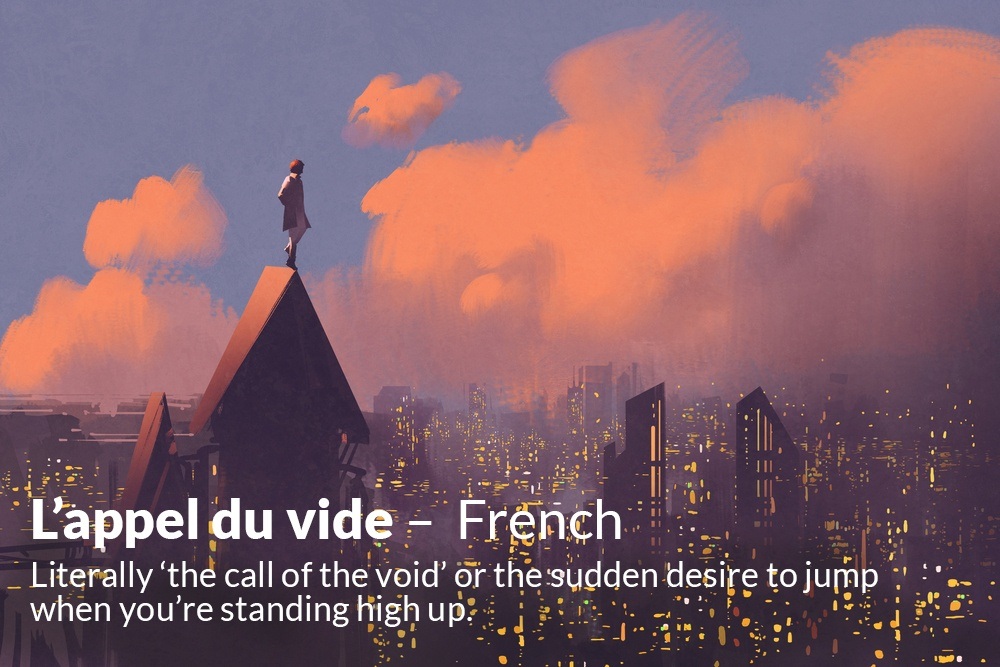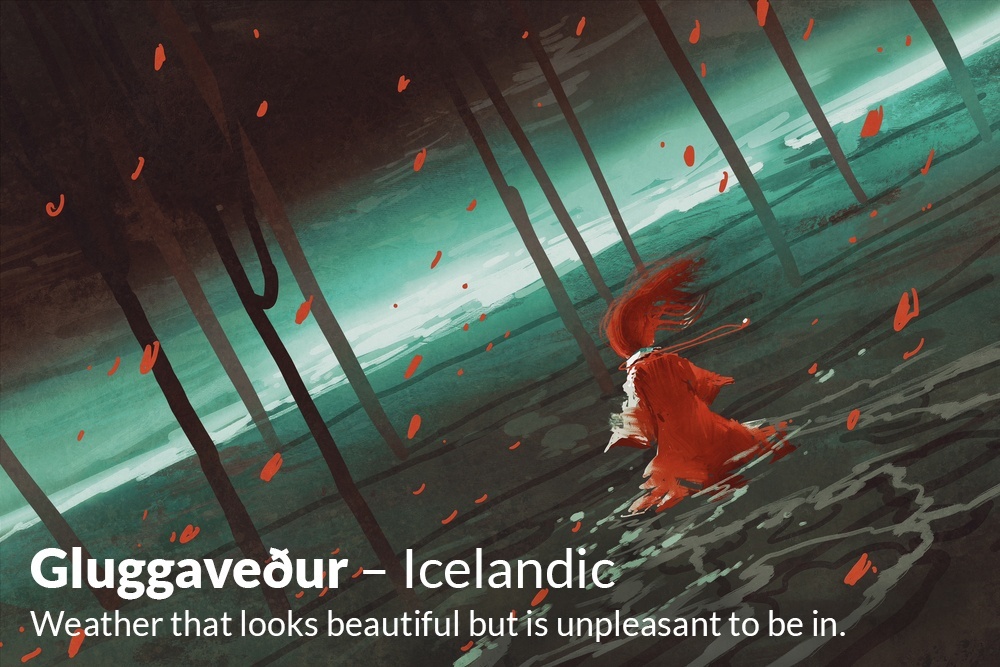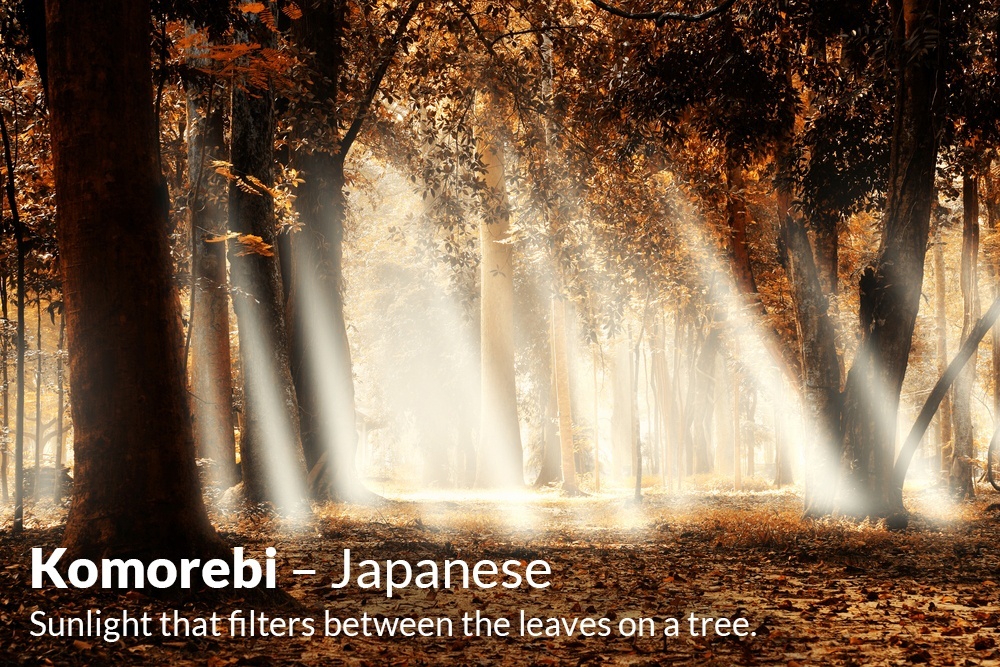At Our World English, we have students from around the world who all come to us to learn or improve their English. Every language has its own quirks, history, and culture surrounding it, so while you may develop a rich vocabulary in English, some words will always remain untranslatable. Here are some of our favourite untranslatable words that students have told us over the years.
Toska – Russian
A mixture of pining, restlessness, yearning, nostalgia, melancholy, and depression.
Jaysus – Indonesian
An unfunny joke that’s told so badly that you actually laugh.
Kyoikumama – Japanese
A mother who pushes her children to achieve academically.
Tartle – Scottish
The hesitation before introducing someone when you’ve forgotten their name.
Prozvonit – Czech
Ringing somebody’s phone once so that they call you back.

L’appel du vide – French
Literally ‘the call of the void’ or the sudden desire to jump when you’re standing high up.
Mångata – Spanish
The trail created by the moon’s reflection on water.
Kilig – Tagalog
The feeling of butterflies in your stomach specifically associated with romance.
Hiraeth – Welsh
The feeling of homesickness combined with grief and sadness for your homeland or a romanticised past. The object of your hiraeth isn’t attainable or perhaps never existed at all.
Flâner – French
Aimlessly wandering without any destination, just to enjoy the views.
Merak – Serbian
The feeling you get from simple pleasures that adds up to a sense of happiness and fulfilment.
L’abbioccio – Italian
The groggy, sleepy, happy feeling after a large meal.

Gluggaveður – Icelandic
Weather that looks beautiful but is unpleasant to be in.
Saudade – Portuguese
Much like hiraeth, this is the longing for something beautiful that’s now gone.
L’esprit d’escalier – French
Literally ‘the spirit of the stairs’ this is when you think of the perfect come back or retort after the conversation has happened.
Dustsceawung – Old English
The thought that dust used to be other things, and realisation that everything will ultimately end up as dust.
Mokita – Kivila
A painful fact that everybody knows but does not mention to avoid causing more pain or embarrassment.
Friolero – Spanish
Somebody who is very sensitive to the cold.
Verschlimmbessern – German
Accidentally making things worse when trying to mend or improve it.
Gökotta – Swedish
Waking up early to hear the first birds sing.
Fernweh – German
The feeling of homesickness for a place that you’ve never been to.
Pochemuchka – Russian
A person who asks too many questions.
Tsundoku – Japanese
Buying a book and leaving it unread, usually surrounded by a lot of other unread books.
Rire dans sa barbe – French
Literally ‘laughing into your beard’ – laughing to yourself at something that happened in the past.

Komorebi – Japanese
Sunlight that filters between the leaves on a tree.
Utepils – Norwegian
Sitting outside on a sunny day and enjoying a beer.
Culacinno – Italian
The ring left on a table from a moist glass.
Won – Korean
Reluctance to let go of an illusion.



